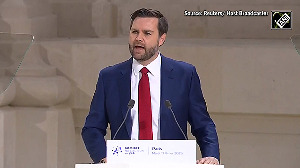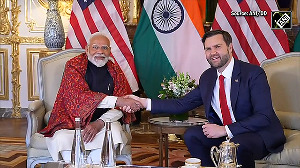India is not convinced that the new texts on agriculture and non-agricultural market access released by the World Trade Organization last Saturday would lead to consensus among members, though some of its concerns have been addressed with caveats.
The texts reflect the latest status in negotiations and act as a basis for further talks. These were released in the backdrop of a possible meeting of world trade ministers at the WTO headquarters in Geneva.
"The texts remain mostly unchanged from those released in July this year. There are some new points on issues related to 'Sectorals' in Nama and Special Safeguard Mechanism in agriculture. They have tried to address points raised by both developed and developing countries. But there is no convergence on the issues and there are wide gaps," said a government official.
Both the chairs of the agricultural and Nama negotiations, in recent public statements, have admitted that consensus is still elusive in the negotiations. The Group of 20 nations, which recently met in Washington, resolved to conclude the Doha round of WTO talks at the earliest while agreeing not to impose any additional trade barriers for one year.
WTO had organised a meeting of senior trade ministers in July this year to finalise the texts, but the talks failed due to differences over issues like SSM.
Indian officials believe that WTO Director General Pascal Lamy will take a final call on another ministerial in mid-December this year, as he was scheduled to speak to trade ministers of many countries, including Indian Commerce Minister Kamal Nath, to assess their response.
SSMs are norms which will allow the country to impose additional import duty on farm products that see a surge in imports, in order to protect marginal farmers. Sectorals refer to negotiations on 14 industrial sectors, on which countries with export interest will have to completely slash their import duties or bring them close to zero.
On the contentious issue of SSMs, the WTO paper has proposed a three tiered structure, which specifies triggers that will allow a country to impose different levels of additional import duties.
India's position is that if imports of farm goods increase between 10 per cent and 15 per cent in any year, it should have freedom to levy the rate of additional import duty, whereas tiered system stipulates what level of import duty can be imposed for different level of import surges.
On sectorals, the WTO paper says sectorals would be part of 'single undertaking', which, according to experts, will mean mandatory compliance.
However, India refuses to make 'sectorals' mandatory, and instead wants them be voluntary.
Experts warn that India will have to tread very carefully on these issues. "Once you are part of sectoral talks to finalise the modalities, whatever the outcome is, it will be very difficult to come out of it," said R S Ratna, professor, Centre for WTO Studies at the Indian Institute of Foreign Trade.
He also pointed out that India needed to have flexibility on imposing whatever additional duty it deemed fit in the case of a surge in farm imports, so that marginal farmers were protected.
At the same time, United States wants 'sectorals' to be included in the agreement, so that it gets additional market access for its products. "The key factor in this issue will be the United States. Till some time back, it was insisting that the G-7 members, including India, China and European Union, should participate in sectoral talks on chemicals as well as an additional sector, options for which included electrical and electronics industry, industrial machinery, pharmaceuticals and forestry. That proposal has not found mention in the text," the official added.







 © 2025
© 2025